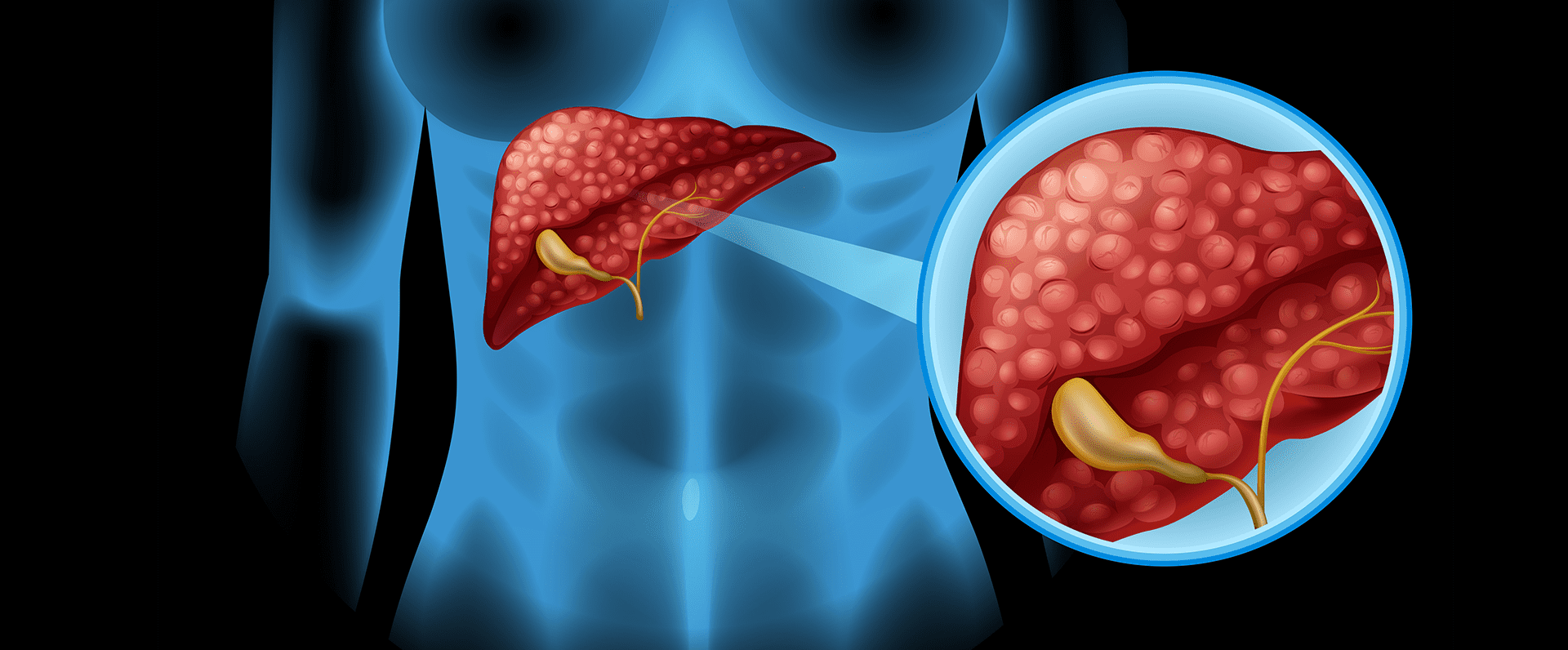The liver is a vital organ of the human body that plays a critical role in digestion, metabolism, detoxification, immunity, and many other functions. Liver diseases are of many kinds; some of the causes include excessive consumption of alcohol, hepatitis, or infection. Autoimmune liver diseases occur when the body’s immune cells start attacking its own liver cells, causing inflammation. If left untreated, these liver diseases result in severe scarring of liver tissue called liver cirrhosis, which may subsequently result in liver cancer and liver failure.
Types of Autoimmune Liver Diseases
Although there are several types of autoimmune liver diseases, the three most common autoimmune liver diseases are:
1. Autoimmune Hepatitis (AIH): AIH can affect both adults and children. It is usually asymptomatic, with no symptoms prior to liver failure. Some people may exhibit common symptoms such as fatigue, abdominal pain, nausea, etc.
2. Primary biliary cholangitis (PBC): PBC is more commonly seen in women than in men. It occurs when the biliary duct within the liver is destroyed by one’s own immune system, impairing the liver’s ability to excrete bile. It may or may not show symptoms. It occurs usually in association with other autoimmune conditions. PBC if left untreated, may lead to cirrhosis and even liver failure.
3. Primary sclerosing cholangitis (PSC): PSC can affect individuals at any age, including children and adults. It is characterized by inflammation and scarring of bile ducts which may result in obstruction of bile through the bile duct. It may or may not show any symptoms. It usually occurs in association with inflammatory bowel disease. If left untreated, the PCS can cause complications such as biliary infections and cirrhosis.
Causes of Autoimmune Liver Diseases
There is no definitive cause of autoimmune liver diseases. It occurs when the body’s immune system starts attacking its own healthy liver cells. A few possible risk factors may include:
• Family history of liver diseases
• Excessive or prolonged consumption of alcohol
• Genetic factors
• Environmental factors
• Past history of certain infections (herpes simplex, Epstein-Barr, etc.)
• Having autoimmune disease (rheumatoid arthritis, Graves’ disease, etc.)
Symptoms of Autoimmune Liver Diseases
The most common symptoms associated with autoimmune liver diseases may include:
• Fatigue
• Abdominal discomfort
• Skin rashes
• Yellowing of the skin and white of the eye (sclera)
• An enlarged liver
• Joint pains
• Loss of menstrual periods
• Abnormal blood vessels on the skin
Diagnosis of Autoimmune Liver Diseases
The diagnosis of autoimmune liver diseases starts with a physical examination followed by blood tests and imaging techniques.
Blood tests
• Anti-liver/Kidney microsomal antibodies: It is a blood test that looks for various autoantibodies that are detected in the serum of an individual presented with an acute or chronic form of liver disease. Antigens of cytochrome P450 are the target for these tests.
• Anti-mitochondrial antibodies: It is a blood test that detects and measures the amount of anti-mitochondrial antibodies present in an individual’s blood. These antibodies are typically associated with primary biliary cholangitis (PBC)/primary biliary cirrhosis.
• Anti-nuclear antibodies: It is a blood test that looks for anti-nuclear antibodies in an individual’s blood. These are antibodies that bind to the cellular components in the nucleus (center) of the cell. It is primarily recommended if an individual is suspected to have an autoimmune disorder.
• Anti-smooth muscle antibodies: This blood test detects antibodies that attack smooth muscle cells. This antibody test is useful in the diagnosis of various autoimmune conditions including autoimmune hepatitis.
• Serum IgG: Immunoglobulin G (IgG) is the most common antibody in the blood. This blood test looks for the levels of serum IgG specific to liver diseases present in an individual’s blood.
• Liver function tests: These tests are performed to check for inflammatory blood proteins and levels of liver enzymes alanine aminotransferase (ALT), aspartate aminotransferase (AST) which tells about the degree of liver damage. During the course of treatment, the healthcare provider may use a liver function test to monitor the treatment response.
• Complete blood count (CBC): Complete Blood Count (CBC) & Hemogram Test helps identify and count various blood cells such as red blood cells, white blood cells, platelets, lymphocytes, etc.
• Electrolyte panel: It helps to determine the electrolyte imbalance in an individual’s blood.
• Autoimmune antibodies: It helps to identify different autoimmune antibodies present in an individual’s blood such as anti-liver kidney microsome type 1 antibody (anti-LKM-1), anti-nuclear antibody (ANA), and anti-smooth muscle antibody (ASMA).
Imaging tests
• CT scan: It provides more detailed horizontal imaging of the liver than a standard X–ray.
• MRI: It provides detailed images of the liver using a dye that is seen more clearly.
• Ultrasound: It provides images of the liver using high-frequency sound waves. It also checks blood flow in blood vessels.
• Liver biopsy: It involves collecting a sample of liver tissue and then examining under a microscope which can help determine the type of liver disease.
Treatment of Autoimmune Liver Diseases
Treatment of autoimmune liver diseases varies depending upon the specific diagnosis.
Autoimmune Hepatitis (AIH): Treatment aims to suppress an overactive immune system.
Primary biliary cholangitis (PBC): Treatment aims at improving bile flow.
Advanced liver diseases (Others): It may require transplanting the liver of an individual.
Autoimmune liver diseases are rare and occur when an individual’s immune system mistakes its own healthy cells for foreign entities and attacks them. The long-term effects of these attacks may result in liver cirrhosis, liver cancer, and eventually liver failure. Various diagnostic tests (blood tests and imaging techniques) and treatment options are available to help identify and treat the condition in individuals suffering from autoimmune liver conditions. In advanced liver diseases, liver transplantation could be the best-considered option.


